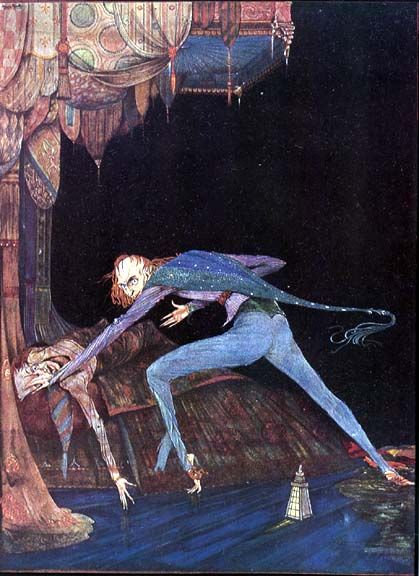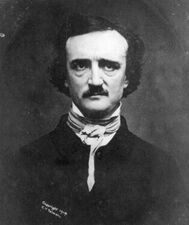The Tell-Tale Heart
Introduction
Yes, I'm nervous, but I'm not crazy. I just have an illness, that's all. An illness that affected my hearing. My hearing had became extremely sensitive. I could even hear things that were happening in Heaven and in Hell. But that doesn't make me crazy, does it? Look, I'll prove to you that I'm not crazy: I'll tell you the story, and you can see for yourself how calm and stable I am. The narrator then proceeds to "calmly" tell us how he (or she) killed an old man then carefully disposed of the body.
|
The story leaves several questions unanswered:
- Is the narrator male or female?
- What is the relationship between the narrator and the victim? Was the narrator a servant in the old man's household? A tenant? Is the old man the narrator's father?
- To whom is the narrator confessing? A judge? A prison warden? A reporter? A doctor? (Psychiatry, as a profession, was still in its infancy when the story was written).


